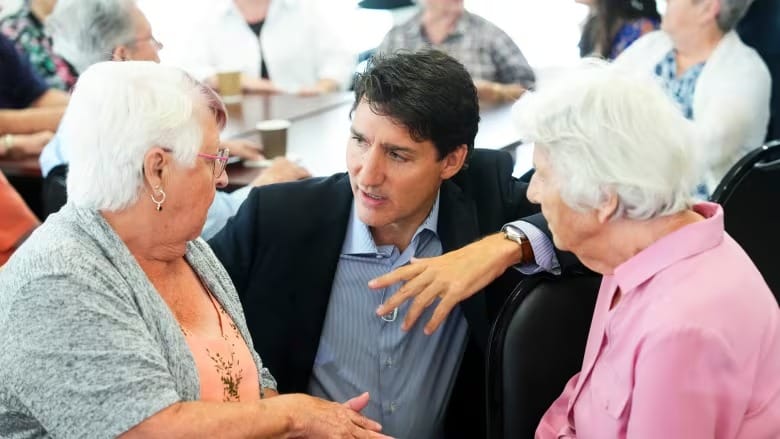There's a battle brewing over generational fairness as Bloc Québécois demands a pension hike
Elderly benefits are already the largest and fastest-growing part of the federal budget

The Bloc Québécois is intensifying its push for the Liberal minority government to increase Old Age Security (OAS) payments, sparking a debate on how Ottawa allocates its spending across different age groups.
Bloc Leader Yves-François Blanchet introduced a motion on Tuesday urging the government to advance legislation that would raise OAS payments for seniors aged 65 to 74. The Bloc has stated it will only continue supporting the Liberals in future non-confidence votes if this OAS hike is approved by the end of the month. They are also calling for stronger protections for supply-managed farming sectors.
Elderly benefits, including OAS and the Guaranteed Income Supplement (GIS) for low-income seniors, already make up the largest and fastest-growing portion of the federal budget. The cost of these benefits is expected to rise from $80 billion this year to $100 billion annually by 2028-29, not factoring in the proposed 10% increase.
Currently, the federal government spends more on benefits for seniors than on other major programs that primarily benefit younger Canadians, such as Employment Insurance (EI) ($26.6 billion), the Canada Child Benefit ($28.1 billion), and the national child care program ($6.6 billion).
According to the Parliamentary Budget Officer (PBO), the Bloc's proposed OAS increase would cost $16 billion over the next five years, adding to Canada's national debt, which now exceeds $1.2 trillion. Servicing that debt costs the government approximately $54 billion annually.
"We have to consider the intergenerational impacts of this. It's a significant amount of money ... and not something to take lightly," Environment Minister Steven Guilbeault said Tuesday. He questioned whether seniors are currently the most in need of financial support, pointing out the difficulties young people are facing. "It's a conversation that needs to happen," he added in French.
The Liberal government has not yet indicated how it will vote on the Bloc's motion. Prime Minister Justin Trudeau's ministers have instead highlighted new government programs, such as dental care and the upcoming pharmacare program, as evidence of their commitment to helping seniors.
Statistics Canada data from 2019 shows that people aged 65 and older are among the wealthiest age groups in Canada, with a median net worth of $543,200, compared to $234,400 for those aged 35 to 44. The Liberal government's last budget, titled "Fairness for Every Generation," was designed to appeal to millennial and Generation Z voters, who are struggling with rising housing prices—an issue that benefits older homeowners but puts financial pressure on younger families.
Blanchet argued that seniors deserve a "significant increase to their purchasing power" because they "literally built Quebec and the prosperity we all enjoy today." He added that younger people in his life are doing well, and those who built the current society should be adequately compensated for their contributions.
He also criticized the Liberal government's decision in 2022 to raise OAS payments only for those 75 and older, calling it a form of "discrimination" against younger seniors.
Part of the Bloc's voter base includes elderly individuals in small communities outside Montreal and Quebec City. "This is a chance to secure meaningful gains for seniors," Blanchet said. "If the government doesn't agree to our request, it shows they don’t want to help millions of Canadians and Quebecers."
Generation Squeeze, an advocacy group for young people, has expressed concern that if the Bloc’s proposal passes, younger Canadians will bear the financial burden of paying for boomers' OAS benefits. They argue that younger people are already struggling with higher housing costs, student debt, and the looming financial impact of climate-related disasters.
In a recent op-ed, Paul Kershaw, the founder of Generation Squeeze, said Ottawa should modernize OAS to better target benefits, asking more affluent boomers to contribute to their generation's income needs rather than passing the costs onto their children.
For the Bloc’s pension legislation to proceed, the Liberal government would need to issue a "royal recommendation," as private members’ bills cannot mandate government spending without cabinet approval. The Bloc’s motion aims to pressure the government into granting that recommendation, allowing the pension bill to move through Parliament.





